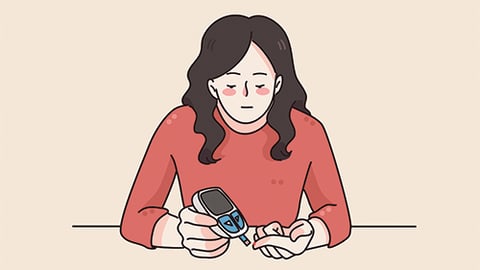Diabetes market faces disruption
Diabetes is certainly making a name for itself these days. In 2023 two events supercharged the category and could radically change the treatment for the 38 million Americans—11.6% of the population–that the CDC estimates suffer from the disease.
One event is the Ozempic phenomena, representing a relatively new class of GLP-1 receptor agonist drugs that help manage blood-sugar levels in people with Type 2 diabetes. In 2023, semaglutide (Ozempic) use soared when it was discovered to have an off-label side effect of weight loss. That some 70 million Americans are obese means semaglutide (Wegovy when used for obesity) could turn out to be the biggest blockbuster drug class of all time.
“Many physicians are calling GLP-1s game-changers at battling obesity and pre- diabetes,” said Casey Pflieger, director of retail sales for Owen Mumford, which makes injection pens and needles, including the world’s first reusable automatic insulin delivery pen. “These experts believe we could reverse the T2D trend. This could alter the drug and device market permanently and dramatically lessen reliance on insulin and all devices related to its drug delivery.”
Ozempic and Wegovy are administered via injection, which could be a boon for brands that supply these diabetes devices, such as syringes and pens.
“Because it is an injection, that could prove beneficial to Allison Medical,” said Brandon Faber, the company’s director of sales, which markets a variety of disposable syringe and pen needle products.
The second significant change in the diabetes market is the Inflation Reduction Act, signed into law by President Joe Biden on Aug. 16, 2022. Starting in 2023, the IRA has lowered insulin costs for 4 million seniors and other Medicare beneficiaries with diabetes by capping a month’s supply of each covered insulin product at $35.
“We embrace this program,” said Faber, “as more affordable insulin, combined with the affordability and quality of the SureComfort brand, will help improve proper diabetes management.”
Berberine—“nature’s Ozempic”—sales soar
Combine the always innovative supplements industry with trend-setting TikTok videos, and you’ve got the latest supplements boom, this time using the herbal ingredient berberine, touted as “nature’s Ozempic.”
Semaglutide (Ozempic, Wegovy when used for obesity) is an injectable drug that works by acting as a GLP-1 receptor agonist, which helps the body produce insulin in response to high blood-sugar levels and slows gastric emptying after meals, with the weighty upshot being feeling fuller longer and thus reduced calorie intake and lower body weight.
The way berberine works is less clear. It has been shown to act against inflammation in the liver as a means of improving insulin resistance. Other researchers postulated a decade ago that berberine exhibits antidiabetic effects through gut microbiota modulation.
Berberine as an oral supplement was found in a 2008 study to be equivalent to metformin (Glucophage) in lowering blood-sugar levels, using 500 mg three times daily for 3 months. In a 2021 study, researchers used 1,000 mg twice daily for 18 weeks to beat a placebo in terms of blood-sugar control and weight loss.
Researchers there used berberine in the context of diabetes and non-alcoholic fatty liver disease, which are often linked because excess fat on the liver is also common in those with excess weight. Diabetes and weight gain are so connected that the phrase “diabesity” is now used in patients who have both.
In 2022, sales of berberine supplements percolated along at about $350,000 a month, according to brick-and-mortar product scan sales data from SPINS. Viral videos on TikTok linking berberine and blood-sugar control began emerging in January 2023, with attendant sales growing to about $500,000 a month. By March 2023 viral videos began linking berberine to weight loss, and by the start of summer mainstream media reports on the trend led to an additional surge, with berberine supplements sales topping out at about $850,000 a month.
“In the age of social media, we’ve seen how viral videos on these platforms have been able to influence sales,” said Scott Dicker, market insights director at SPINS. “Even now, months after the peak of the trend, the supplement continues to see increased sales compared to the ‘pre TikTok trend’ period.”
Under Medicare Part B and Medicare Advantage, when insulin is delivered through a pump that is covered under the durable medical equipment benefit, cost sharing is capped at $35 for a month’s supply of insulin. Medicare Part D covers things like syringes used to inject insulin, according to the Centers for Medicare & Medicaid Services, a federal agency within the U.S. Department of Health and Human Services.
[Read more: How pharmacists can bridge the diabetes care education gap]
HHS estimates that 1.5 million Medicare beneficiaries will benefit from the new insulin provision in the IRA, with an approximate annual cost savings averaging $500 per person. “The Inflation Reduction Act hasn’t had a direct impact on our business, although it is causing disruption for some of our partners who purchased insulin at higher prices last quarter and are now being reimbursed low,” said Pflieger, who noted Owen Mumford is seeing strong growth with its safety pen needles across Medicare Part D plans. “This is another challenge for pharmacies that are already underwater in so many categories.”
Diabetes Types 1 and 2
Both Type 1 and Type 2 diabetes center around insulin—a vital hormone that is required by the body to properly use sugar, or glucose. Type 2 diabetes is by far the more common type; about nine out of 10 diabetics have Type 2, according to the CDC. Also known as “insulin resistance,” the body either does not make enough insulin in the pancreas or the insulin is not good enough to properly deal with the circulating glucose that happens when the body breaks down foods.
Sometimes insulin injections are used to manage blood-sugar levels with Type 2 diabetics, though most of the time it is managed through smart dietary measures and exercise, beverages low in carbohydrates and sugar like the Glucerna brand, natural dietary supplements such as alpha-lipoic acid to improve insulin sensitivity and cinnamon to reduce blood-sugar levels after meals, or pharmaceuticals like metformin (Glucophage). The drug works by helping the body lower production and absorption of glucose, and it helps reduce insulin resistance.
Type 1 diabetes, on the other hand, happens when a body just does not produce insulin. That means patients must take insulin or analogues via regularly occurring injections. Type 1 diabetes has long been a challenge for patients, what with the invasive regime of regular insulin injections.
Brands assisting pharmacies
Drug stores play a vital role in the day-to-day life of Type 1 diabetic patients by offering a range of use-at-home pens and syringes that bring to patients a sense of ease in receiving the intravenous insulin their body requires to stay alive.
“Diabetes management can be confusing and overwhelming for newly diagnosed patients, and injection therapy can be particularly frightening and intimidating,” said Pflieger. “Because of this, Owen Mumford provides complementary Injection Therapy Guides designed to reinforce good injection technique and advise patients of the risk factors of needle reuse. We provide these injection guides free of charge to pharmacies, along with complementary pen needle samples.”
Owen Mumford’s Unifine SafeControl is emblematic of the company’s innovation mindset; a pen needle used by healthcare professionals, it activates a safety mechanism once professionals are completely confident the full dose has been delivered so that the complete insulin dose is delivered.
Another brand, UltiMed, manufactures diabetic devices, pens, syringes and insulin delivery pens in 30-, 90- and 100 counts. It helps drug store staff educate customers with custom microsites containing product information, a short training video, pharmacist talking points and safe sharps disposal resources in both English and Spanish.
“The consumer healthcare landscape is ever evolving and changing, what with the growth of high-deductible health plans, customer concerns around affordability, and the presence of cash patients, not to mention the development of e-commerce alternatives,” said Sarah Hanssen, vice president of sales and marketing at UltiMed. “We recommend an over-the-counter, cash pen needle option as an important way for pharmacies to diversify and continue to capture market share.”
Allison Medical specializes in providing value to pharmacies as well as downstream to its customers through its SureComfort brand. This goes for both educational materials for pharmacists and affordability for diabetic customers.
[Read more: Diabetes care tunes in to technology]
“While our quality exceeds the Six Sigma standards,” said Faber of Allison Medical, “we offer our items at an affordable cost to pharmacies, allowing them to make greater profits while providing proven quality care for their patients. When patients have access to quality delivery devices at a more affordable price, they are more inclined to manage their diabetes properly; that is, less likely to reuse needles.”
Other brands help diabetics with blood glucose monitoring tools. The OneTouch brand helps diabetics know when to avoid highs and lows. Its OneTouch test strips are covered by Medicare Part B. “With Bluetooth-connected meters and our highly rated OneTouch Reveal mobile app, patients can also automatically log readings, track patterns and share data with their care team,” said David DeJonghe, VP, global head of marketing at LifeScan. “OneTouch test strips are also available at the lowest copay on the most health plans and also covered by Medicare Part B.”
The OneTouch brand makes educational resources and materials available for healthcare providers, including drug store staff through its website at professional.lonetouch.com.
New studies could upend the market
And the seismic shifts in the diabetes market keep on coming. Within Ozempic world, its maker, Novo Nordisk, received approval from the FDA in 2019 for an oral pill version of semaglutide to treat diabetes.
In August 2023, provocative new research published in The Lancet using Novo’s 50 mg pill semaglutide (Rybelsus) found a once-daily provision in 667 overweight or obese patients for 68 weeks resulted in a statistically significant weight loss of 17.4% compared to placebo. An incredible 85% of those taking the pill achieved a weight loss of 5% or more, compared to about 26% for placebo. (Both groups also received lifestyle interventions including counseling on behavioral and physical activity as well as concomitant dietary strategies.) Side effects are mostly consigned to gastrointestinal issues such as nausea, vomiting, diarrhea, stomach pain and constipation.
Other new research, published in September 2023 in the New England Journal of Medicine, indicates that taking semaglutide (Ozempic) orally could possibly obviate the need for insulin injections altogether—a finding that, if confirmed with more detailed research, could absolutely be a game-changer in quality of life for Type 1 diabetic patients.
The research, conducted at the State University of New York at Buffalo, found that popping pills of semaglutide instead of injections led to the complete elimination of prandial insulin in all patients. Prandial insulin is taken before each meal and it is composed of either short-acting regular human insulin or fast-acting insulin analogues, such as lispro, aspart or glulisine.
The researchers also discovered that semaglutide led to the elimination of basal insulin in most (but not all) patients. Basal is a longer-acting insulin, which patients can take just once or twice daily and generally acts in the body for up to 24 hours, though that frequency can change depending on age and weight.
“If these findings are borne out in larger studies over extended follow-up periods, it could possibly be the most dramatic change in treating Type 1 diabetes since the discovery of insulin in 1921,” said Paresh Dandona, M.D., Ph.D., the lead author of the study. “Within three months, we were able to eliminate all of the mealtime insulin doses for all of the patients, and within six months we were able to eliminate basal insulin in 7 of the 10 patients. This was maintained until the end of the 12-month follow-up period.”
Who wouldn’t rather take a pill than an injection, even with today’s modern pens and relatively comfortable injectables?






